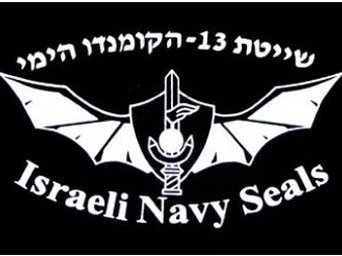By Barak Ravid Haaretz, Israel
Senator Patrick Leahy claims Shayetet 13 unit, undercover Duvdevan unit, and the Israel Air Force Shaldag unit are involved in human rights violations in occupied territories.
U.S. Senator Patrick Leahy is promoting a bill to suspend U.S. assistance to three elite Israel Defense Forces units, alleging they are involved in human rights violations in the West Bank and Gaza Strip.
Leahy, a Democrat and senior member of the U.S. Senate, wants assistance withheld from the Israel Navy’s Shayetet 13 unit, the undercover Duvdevan unit and the Israel Air Force’s Shaldag unit.
Defense Minister Ehud Barak, a long-time friend of Leahy’s, met with him in Washington two weeks ago to try to persuade him to withdraw the initiative.
According to a senior Israeli official in Jerusalem, Leahy began promoting the legislation in recent months after he was approached by voters in his home state of Vermont.
A few months ago, a group of pro-Palestinian protesters staged a rally across from Leahy’s office, demanding that he denounce the killing by Shayetet 13 commandos of nine Turkish activists who were part of the flotilla to Gaza last May.
Leahy, who heads the Senate Appropriations Committee’s sub-committee on foreign operations, was the principle sponsor of a 1997 bill prohibiting the United States from providing military assistance or funding to foreign military units suspected of human rights abuses or war crimes. The law also stipulates that the U.S. Defense Department screen foreign officers and soldiers who come to the United States for training for this purpose.
Leahy wants the new clause to become a part of the U.S. foreign assistance legislation for 2012, placing restrictions on military assistance to Israel, particularly to those three units.
Leahy says these units are responsible for harming innocent Palestinian civilians and that no system of investigation is in place to ensure that their members are not committing human rights violations. According to Leahy’s proposal, U.S. military assistance to Israel would be subject to the same restrictions that apply to countries such as Egypt, Pakistan and Jordan.
The senior Israeli official said that the Israeli Embassy in Washington had been trying unsuccessfully now for some months to persuade Leahy to back down from the initiative.
Two weeks ago, during Barak’s visit to Washington, Israel’s ambassador to the United States, Michael Oren, asked Barak to meet with Leahy to dissuade him from promoting the legislation.
Leahy, who is on the Democratic Party’s left flank, has for many years promoted human rights issues globally. He has been sharply critical of Israel in recent years, especially following Operation Cast Lead in late 2008.
However, he also signed Congressional resolutions supporting Israel’s right to self-defense.
Leahy, 71, has served in the Senate for 35 years. He was a personal friend of former Prime Minister Yitzhak Rabin and has known Ehud Barak since the latter was IDF chief of staff.
Barak, who met with Leahy privately, was quoted by the senior Israeli official as telling the senator: “The difference between Israel and terror groups or other countries in the Middle East is that we give an accounting and there is monitoring.”
Barak also said the IDF had a strict judiciary with broader powers than the judiciary in the United States armed forces.
Barak was also quoted as telling Leahy that the IDF military advocate general is not subservient to the military command, but rather to the attorney general, and has complete autonomy.
“If a Palestinian is injured, he can approach the High Court of Justice,” Barak said. “The investigations undergo judicial review that is independent of commanders. There are dozens of hearings every year that are based on Palestinians’ complaints against soldiers. They reach the highest and most independent authorities,” he said.
Leahy listened to Barak, but he did not say whether he would withdraw his initiative. According to the senior Israeli official, Israel does know whether Leahy has done so.
However, the official said Barak felt Leahy had understood his message, and that the Israeli Embassy in Washington was following the matter. If necessary, Barak and Leahy would hold another talk, the official added.
Leahy’s spokesman, David Carle, said the senator did not comment on his private conversations.
ATTENTION READERS
We See The World From All Sides and Want YOU To Be Fully InformedIn fact, intentional disinformation is a disgraceful scourge in media today. So to assuage any possible errant incorrect information posted herein, we strongly encourage you to seek corroboration from other non-VT sources before forming an educated opinion.
About VT - Policies & Disclosures - Comment Policy



